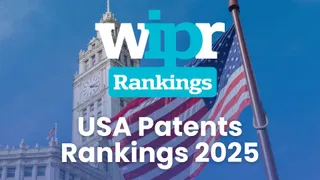Bristows
Firm overview:
Bristows claims the largest patent litigation practice in the UK and its name frequently crops up in discussions about top-tier firms. Highly regarded for the strength and depth of its expertise across the life sciences as well as high-tech sectors, the firm describes itself as a European-headquartered hub for litigation, transactions and advice throughout the world.
On the transactions side, Bristows works with clients ranging from startups and SMEs to household names and global multinationals, advising on deals that involve the creation, development and commercialisation of IP. The team has particular expertise in advising on life sciences partnering arrangements to help bring new treatments and medical devices to market.
Litigation is the firm’s main focus, and it has over 60 team members dedicated to the work including 14 partners and 30 qualified associates. It concentrates mainly on litigation in the UK Patents Courts and Unified Patent Court (UPC) but the team’s expertise extends to worldwide disputes and cross-border matters. The firm is also adept at mediation and settlement negotiations and has considerable experience of some of the rarer forms of alternative dispute resolution, including expert determination.
Team overview:
The Bristows team is “approachable, knowledgeable and proactive, with deep experience in handling cross-border patent litigation and regulatory matters”, says a peer.
Team members singled out for the high calibre of their work include Dominic Adair and Rob Burrows. Joint head of the patent litigation department Burrows has over 20 years of litigation experience and often co-ordinates parallel proceedings in the UK, European Patent Office and jurisdictions across Europe.
Adair, a patent litigation partner, has worked on all aspects of the drug life cycle, and handles some of the most complex disputes in the life sciences industry.
Andrew Bowler, also joint head of the patent litigation department, is known for representing clients in high-profile patent disputes across a wide range of technologies. Recent work highlights include representing Teva in its dispute over Bayer’s rivaroxaban patent.
Patent litigation partner Brian Cordery has been instructed by some of the world’s leading healthcare companies to defend and enforce high-value patents. With a practice spanning almost three decades, some of Cordery’s work highlights include acting for Novartis in relation to patents for some of its most successful products, and representing Teva in cases over antibodies patents. Peers comment that he is amicable and “extremely easy to deal with”.
In February 2025, Bristows brought in experienced patent attorney Naoise Gaffney as of counsel, UPC director in the Dublin office. The firm said the move underscored its commitment to expanding its patent litigation practice and enhancing its capabilities at the UPC.
Key matters:
- Rivaroxaban patent litigation—Teva
Partner Andrew Bowler acted for Teva in High Court and Court of Appeal proceedings in its litigation with Bayer.
Multiple pharmaceutical companies have challenged a European patent held by Bayer that covers Xarelto (rivaroxaban), in an effort to bring generic versions of the drug to the market.
In 2024 the Court of Appeal rejected Bayer’s challenge to an earlier High Court ruling, confirming the patent’s invalidity.
- Panasonic v Xiaomi
Bristows represented Panasonic in a dispute over licensing terms for standard-essential patents (SEPs) in telecom technology. In October 2024, a three-judge panel in the UK ruled in favour of Xiaomi, granting its request for an interim licence declaration.
On January 14, 2025, the companies announced they had reached a licensing agreement covering the SEPs, and all worldwide IP disputes were withdrawn.
- Patent litigation—Novartis
Bristows represented Novartis in its dispute with biopharma company Celltrion over asthma drug omalizumab. In a judgment handed down in January 2025, the UK High Court ruled that a patent belonging to Novartis and Genentech covering the drug was valid and infringed by Celltrion.
However, when considering the European patent relating to the medication, the Düsseldorf Local Division of the Unified Patent Court determined that there was no imminent infringement of patent rights.
Clients:
Novartis, Panasonic, Teva

